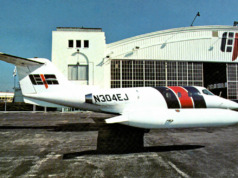I t was time to renovate, to update, and to complete some overdue home maintenance. The work was well underway.
Craftsmen were replacing drywall and flooring in preparation to remodel the house for only the third time in eight decades.
And then… the unexpected. The refurb crew uncovered previously hidden construction defects. And with that revelation came the inevitable delays, as their efforts now were redirected toward repairing and restoring, before remodeling. The time to complete the project now had nearly doubled, as did the budget.
Preparing for unexpected and unforeseen delays while traveling is much, much easier. When you fly commercially, trip interruption and trip cancellation insurance provides some compensation or reimbursement for the inconvenience caused by extensive maintenance delays, severe weather, terrorist action, or hijacking.
Providing trip insurance for business jet travel is even easier. If you own an aircraft, also having a fractional share, charter contract, or jet card provides the necessary back up when your own aircraft is unavailable, whether due to unscheduled maintenance – or to unforeseen delays in scheduled overhauls or refurbishment.
You have other options, of course. You may have friends or business associates who let you use their aircraft when yours is down – all you have to do is cover the direct operating costs for the trip. Kind of like borrowing a college roommate’s car for the weekend – all you had to do was fill the tank before returning it.
But that option can put your safety – as well as your wallet – at risk. Whenever money changes hands for use of an aircraft and its crew, it’s a commercial flight. That means the aircraft and crew must be on a Federal Aviation Regulation (FAR) Part 135 commercial operating certificate. Otherwise it’s illegal charter, and the FAA and DOT are now actively pursuing – and fining – those who take part in it.
Their concern is the margin of safety. For example, pilots flying commercially under Part 135 must attend recurrent training semi-annually, where pilots flying privately under Part 91 need attend only annually.
Regarding your wallet? When money changes hands for a flight – even for just the direct operating costs – the 7.5% Federal Excise Tax is due on the charges, just as it is on an airline ticket or a legitimate charter flight. Failure to pay the FET results in fines that can run into seven figures.
Business aircraft travel insurance is readily available from professional aviation operators and brokers who comply with the applicable FAA and DOT regulations.
I just wish someone would offer “home remodeling interruption” insurance… BAA
Publisher of Business Aviation Advisor, has nearly 50 years in business aviation including executive positions at aircraft management/charter and ground services companies. He is a past director of the NATA and Corporate Angel Network.





